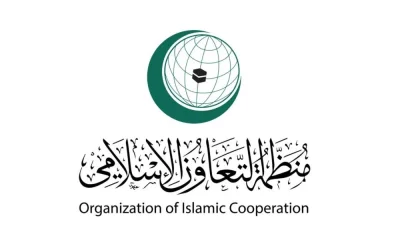The UK comes on top of a list of Islamic finance knowledge providers, with 80 institutions providing courses on the matter in the country as per 2017. Malaysia is second with 59 courses, Indonesia third with 57, ahead of the UAE with 50 and Pakistan with 37 courses, according to the Islamic Finance Development Report 2018 compiled and issued by Thomson Reuters.
However, when it comes to research related to Islamic finance, Malaysia is by far the top country with 559 scientific articles published and reviewed last year, clearly ahead of Indonesia, Pakistan, the UK and the US. The overall ranking is the same as compared to the number of courses.
Both factors matter, the report says, since Islamic finance knowledge is assessed through education as well as research as the main building blocks for any knowledge-based industry. They are the input factors needed to achieve depth and efficiency in the Islamic finance industry and to groom a qualified and skilled workforce in order to push the sector forward and allow for excellence and innovation.
The report counted a total 688 Islamic finance education providers around the world as per 2017, with Malaysia having the highest share of educational institutions offering Islamic finance courses out of its total education providers at 68%, followed by Pakistan at 51%, Saudi Arabia at 47% and Bahrain at 41%.
As a trend, Islamic finance education is becoming more mainstream around the world, with educational institutions beginning to cater to the needs of Islamic finance professionals by offering more postgraduate degrees in the subject, the report noted, citing new entrants to the sector such as Romania and New Zealand which now offer professional certificates in Islamic finance.
Another trend is the growing number of Islamic finance courses being offered by globally recognised universities in the US, UK, Australia and elsewhere. Overall, the report counts fourteen universities offering Islamic finance education which listed in the Times top 100 World University Rankings 2018.
In terms of degree types, the most popular degree is the Diploma, followed by Master of Arts, Bachelor of Arts, Bachelor of Science and Master of Business Administration. But there has been a trend by education providers to develop more tailored programmes to help groom what is seen as the next generation of Islamic finance professionals.
One example is cited as the Islamic Development Bank Group having established a new Business School Masters in Islamic Finance and Leadership in partnership with professional education providers. As of late, the University of Reading Malaysia co-operated with the Islamic Banking and Finance Institute Malaysia to create new training courses on Islamic finance, while the Bahrain Institute of Banking and Finance has partnered with the UK’s Coventry University to launch a new Islamic Finance Management Development Program.
However, the report also cites obstacles in the Islamic finance education sector. One is certainly a continued shortage of academic personnel available to provide education in specialised areas.
Most Islamic finance degrees remain general in nature, resulting in a large number of graduates lacking specialised knowledge, the report states, noting that currently 90% of Islamic finance degrees were focused on core knowledge in Islamic finance or banking, with the remainder focused on Islamic economics, auditing or Islamic law, which limits the areas of specialisation among Islamic finance experts particularly in the fields of Islamic asset management, Islamic alternative investments and takaful.
To further enhance the reach of Islamic finance education, the report recommends resorting to online learning including Massive Open Online Courses and setting up dedicated training centres for working professionals to provide them with additional specified knowledge such as risk management, Shariah-compliant valuation techniques and methods to adjust Islamic banking balance sheets to international auditing standards. This would close an immediate gap towards conventional finance and quickly broaden the range of qualifications of Islamic finance degree holders.

A delegate uses a laptop computer during the 9th World Islamic Economic Forum (WIEF) in London in this file photo dated October 30, 2013. The UK comes on top of a list of Islamic finance knowledge providers, with 80 institutions providing courses on the matter in the country as per 2017.


